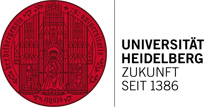Intelligent implants
A new interdisciplinary institute at the intersection of the natural sciences and the molecular life sciences, material science and molecular engineering has taken up work at Heidelberg University: the Institute for Molecular Systems Engineering (IMSE). The new discipline of molecular engineering deals with nano-sized components and constructs novel materials with intriguing properties that lend themselves to a number of interesting applications. These range from intelligent implants that can help treat patients with certain medical conditions to light-controlled soft robots that are moved by living muscle cells and equipped with a human sense of touch.
‘One aim of our research at IMSE – which is admittedly still a long way off – is to create artificial tissue and implants that can react autonomously, in effect intelligently, to changes’, says Prof. Christine Selhuber-Unkel, who has been heading a research group at the new institute since 1 July 2020. This might be an autonomous implant that recognises life-threatening bacterial infections early on and reacts by releasing antibiotics into the bloodstream. The first steps on the path to such ‘sensible’ materials have already been taken, as Prof. Selhuber-Unkel explains. ‘For example, my research group is currently investigating materials that react to an acute epileptic seizure by releasing anti-epileptic medication via an external control unit.’ Another field of research of molecular systems engineering is the integration of living biological systems into robotics, something that might also help robots react autonomously. A robotic nurse, for instance, that is equipped with a human sense of touch could make the contact between man and machine a pleasant and controllable experience.
The new Heidelberg institute is a central element of the flagship initiative ‘Engineering Molecular Systems’ that was established in the context of the Excellence Strategy and focuses on research topics from the natural sciences, molecular life sciences, material sciences and molecular engineering that have a high potential of delivering practical applications. A new IMSE building that will house physics, chemistry, material science and molecular biology laboratories is under construction on the Neuenheimer Feld Campus and will be completed in 2021. On its south side, it will connect the Centre for Advanced Materials (CAM) with the new building of the European Institute for Neuromorphic Computing (EINC).
Prof. Selhuber-Unkel has written an article on her research at IMSE for the latest edition of Heidelberg University’s research journal RUPERTO CAROLA, entitled MAN & MACHINE.

